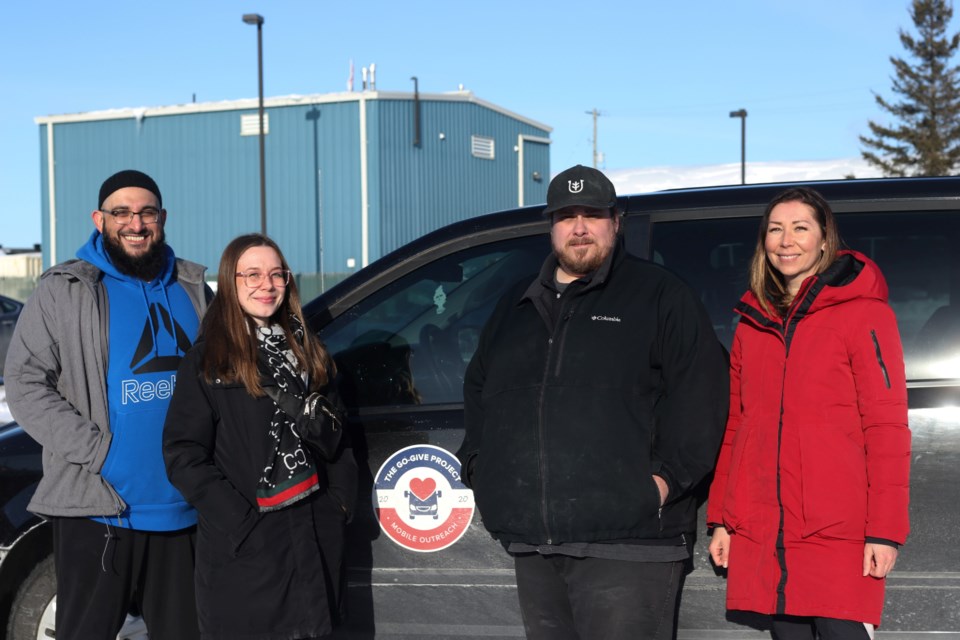Volunteers in Timmins are taking a DIY approach to helping people.
DIY Community Health Timmins is teaming up with Sudbury’s Go-Give Project to address some of the gaps in services for people in need.
The Go-Give Project is an outreach program that operates overnight, on holidays and other times when other supports are not available for those who are using drugs and living without a home.
DIY Community Health is aiming to provide similar support here in Timmins.
“We’ve heard a very one-sided conversation about community safety,” said Jason Sereda, who is one of the organizers of DIY Community Health. “Quite frankly, there is nothing more dangerous than sleeping outside, or using drugs in an environment where you’re using alone, so if we’re going to have that conversation, we need to hear all voices.”
The groups provided a pop-up community dinner for people on the streets and gave out 50 meals in about 45 minutes on Tuesday night.
The food for the event was donated by Timmins Lawyers Feed the Hungry.
Several mental health and addiction students from Northern College and Mayor Michelle Boileau were present during the event that ran in the Timmins Public Library parking lot.
The collaboration between the two organizations is natural according to Sereda, with the pop-up meal being a way to introduce the Go-Give team to the local community.
“The partnership started last fall, I reached out to them after watching what they were doing in Sudbury on social media, and I invited them up to Timmins for a conference we had at Northern College,” said Sereda. “From there the conversations led to the similarities between the two cities, and the similarities around gaps and how we were seeing a lot of people marginalized from services and falling outside the mainstream.”
The chance to work together and learn from each other’s experiences made sense for Sereda.
“Really, we’re looking to utilize each other’s strengths so that any challenges we come up against, we have that back-up, we have that extra support and extra knowledge, to make sure that we’re following best practices," he said.
The goal for the Go-Give Project’s executive director said Evie Ali is to share best practices and to learn from each other.
“We’re here to share some of our knowledge, and gain some of their knowledge so we can review some of the gaps we’re experiencing in northern communities,” said Ali. “And through that, we’re hoping that Timmins will see some overnight outreach develop.”
The team from Sudbury is in town for the next three days. They will be helping with outreach, putting together and distributing harm reduction kits.
“We’re just really focusing on the next steps for those permanent solutions,” said Ali. “Like Timmins, we suffer from a lack of shelter space, so we’re working very hard on advocacy.”
Sereda said that they are in the process of obtaining not-for-profit status to allow them to expand their work.
“This kind of work is difficult so it’s important to have peers and colleagues that you can lean on,” he said. “So we’re looking to grow that network across Northern Ontario.”



